Drug-related deaths have become an inescapable tragedy in communities across Fife and Tayside, particularly in areas already burdened by poverty, unemployment, and social inequality.
In 2023, Fife recorded 70 drug-related fatalities, the highest number in four years.
Dundee, still reeling from its history of substance misuse, remains one of Scotland’s most affected cities.
Opioids such as heroin and methadone continue to be the leading causes of death, while an alarming rise in fatalities linked to benzodiazepines compounds the crisis.
‘Drugs are cheaper to buy than alcohol’
In Fife, the drug death rate for 15-24 year-olds is higher than the Scottish average.
One young woman from Levenmouth told The Courier: “It’s easier to buy drugs than it is to get a taxi.”
She explained that kids in the area can easily spend their school lunch money on a gram of ketamine for just £10.
Children who grow up around substance misuse are more then twice as likely to become addicts themselves.
Yet, amidst this bleak reality, there are signs of hope.
In Kirkcaldy, a group of young people affected by multi-generational drug and alcohol addiction are leading the way in a groundbreaking project to better understand the drug crisis in their communities.
The Clued Up Project’s youth forum, in partnership with Stirling University, is conducting research aimed at exploring the human impact of drug misuse and drugs deaths on their generation.
Through interviews, data collection, and personal testimonies, the forum hopes to break the cycle of addiction and loss that has claimed far too many lives.
Real lives behind drugs death statistics
I spent a day with Clued Up’s dedicated staff and members of the youth forum, getting an intimate insight into the human cost of drug addiction.
I heard how children, often still in school, are turning to substances supplied by unscrupulous dealers.
Often, they are searching for escape – for something to numb the pain of lives already marked by hardship and uncertainty.
Yet, thanks to trusted relationships built through Clued Up, members of the youth forum, often personally touched by drug-related deaths, are finding ways to push back and use their voices to advocate for change.
Peter’s story: ‘I lost both parents to drug addiction by the age of 15’
Peter, 21, who asked that his real name be withheld, explains how he lost both his parents to drug addiction by the age of 15.
Born in Dundee and later moving to Fife, his childhood was marked by violence, neglect, and instability.
Reflecting on his tumultuous childhood, he shares that his “only regret in life” is hitting his heroin-addict mother with a golf club.
“It was the sheer anger in me,” he says, now regretting his actions.
Peter’s mother, from a Traveller background, had unresolved traumas that led her to substance misuse.
His father was involved in illegal activities such as drug dealing and tobacco smuggling.
As his parents’ addiction worsened, Peter was placed in foster care.
Though he briefly experienced a sense of freedom, it was soon overshadowed by a lack of emotional support.
“I needed soft love, not tough love,” Peter reflects, recalling his many encounters with the Children’s Panel.
Peter turned to drink and drugs – then Clued Up offered him a lifeline
Peter’s hopes for a better life were dashed when he was reunited with his parents, only to find they had lied to social workers about their continued drug use.
The abuse resumed, and at 13, Peter lost his mother to a drug overdose.
His father succumbed two years later.
“That’s when the drinking and drugs started,” Peter admits.
“I got really good at stealing. By 16, I was using alcohol and sniffing coke at parties to numb the pain.”
Despite this chaos, and his continuing challenges, he’s found hope.
When Peter was 13, Stevan Sutherland, a development worker from Clued Up, entered his life.
Initially skeptical after being referred by his school, Peter soon realised that Stevan wasn’t just “another f**king prick with a degree.”
Over time, Stevan became a mentor, showing Peter that change was possible.
Today, Peter still faces challenges. He admits he still enjoys drink and drugs.
But he has joined the youth forum to help prevent others from experiencing the pain he’s endured.
“I want to be part of something greater than me,” Peter explains.
Sky’s story: From homelessness to advocacy
Sky, 18, who helped recruit Peter to the youth forum, has had her own difficult journey.
Raised in a household where her parents struggled with addiction, Sky was placed in foster care at a young age with her younger sister.
By 14, Sky was homeless, staying with friends before ending up in a shelter at 16.
“I thought the world was against me,” Sky says, recalling the anger and confusion she felt.
Like many young people facing such hardships, Sky turned to alcohol and drugs to cope.
Some young people were smoking cannabis at primary school.
But after receiving support from Clued Up, she’s begun to rebuild her life.
Sky credits the staff at Clued Up, especially Abbey Taylor, who played a pivotal role in helping her regain trust in others.
Sky became involved with the youth forum as a way to give young people a voice in the fight against drug misuse and addiction.
“The youth forum is about positive change and feeding that back to the powers that be,” says Sky.
“This is what young people need, and this is what they are telling us.”
The youth forum’s research will eventually be presented to the Scottish Government and policymakers, with the hope of influencing drug policy and improving support for young people affected by addiction.
Clued Up outreach work: Building trust one relationship at a time
Earlier, I went on the road with Mark Henry, 39, an outreach development worker, as he visited clients in the Glenrothes and Levenmouth areas.
Mark’s work focuses on building one-on-one relationships, offering young people the support they need to make positive changes.
We first meet Stuart, 18, who Mark has been supporting since 2022.
Stuart, whose real name we’ve been asked to withhold, grew up in a household where both of his parents struggled with heroin addiction.
Exposed to chaos from a young age, Stuart fell into antisocial behaviours such as shoplifting and drinking by his early teens.
“Life was ‘sh*t’ growing up,” he says, recalling his frequent run-ins with the police.
His life took a dark turn at 11 when he was charged with setting a fire with his stepbrother.
It wasn’t until Stuart confided in a teacher that social services intervened, eventually placing him in his grandmother’s care.
However, this environment was also unstable due to his uncle’s drug use.
How did life begin to improve with Clued Up’s help?
Things began to improve when Mark started working with him.
Mark recalls:“We met on Friday nights, just talking to young people in their environment. No pressure – just letting them know help was available.”
Soon after, Stuart agreed to ongoing support.
With Mark’s help, Stuart has made strides toward rebuilding his life.
He’s currently enrolled in a construction course and has reconnected with his passion for playing the bagpipes.
“I want to be a joiner, but I keep getting splinters!” he jokes, a testament to the small victories that are becoming part of his recovery.
“Clued Up have always been non-judgmental, and that’s been huge for me.”
Hannah’s journey: Overcoming trauma and finding independence
Travelling to Levenmouth next, we meet Hannah, 25, (we’ve changed her name to protect her identity), who has been affected by her stepfather’s heroin addiction since she was a teenager.
“It made me into a nasty person,” she admits.
Despite these struggles, Hannah took steps towards turning her life around by participating in an employability programme at 16.
She has also benefited from Mark’s support through ongoing mental health challenges, including PTSD after the loss of her infant son.
Hannah credits Mark for helping her become more independent and for showing her that she has the power to overcome her past.
“Mark has been a constant support,” she says.
Mark tells The Courier that growing up with a heroin addict in his own family as a child helps him feel empathy now.
He realises he could have benefited from the support of Clued Up when he was young.
Building trust is key to work of Clued Up, says manager Laura Crombie
Clued Up service manager Laura Crombie, 46, explains that they provide a comprehensive, “youth friendly” substance use support and information service for young people under-26 in Fife, also targeting the wider issues of general well-being and lifestyle.
“We want young people to have someone they can turn to – before we even start talking about the issues, we have to build that trust,” she says.
“The reality today is that drugs are more accessible than ever before.
“It’s easier to get your hands on drugs like ketamine and cocaine than it used to be.
“And cannabis use has become so normalised that you can smell it walking down the street.”
Stigma around addiction remains
Over 30 years, Clued Up’s approach has evolved from raising awareness to providing intensive, one-on-one support.
The stigma surrounding addiction remains a challenge, however, and funding is always a hot topic.
While Clued Up staff like Amy Scott and Mhairi Cormack, also spoken to by The Courier, do an amazing job, Clued Up believes more could and should be done to tackle Scotland’s drugs problem if more resource was available, targeting young people.
They are working closely with other services like education and social work to ensure young people have a voice in the systems that affect them.
Despite the challenges, Laura remains hopeful.
“Young people are always going to experiment,” she says.
“It’s cheaper to use drugs than it is to drink alcohol, and that’s created a culture where experimentation is more likely.
“But what we do is help them find the resilience to cope and make positive changes – if that’s what they want.”

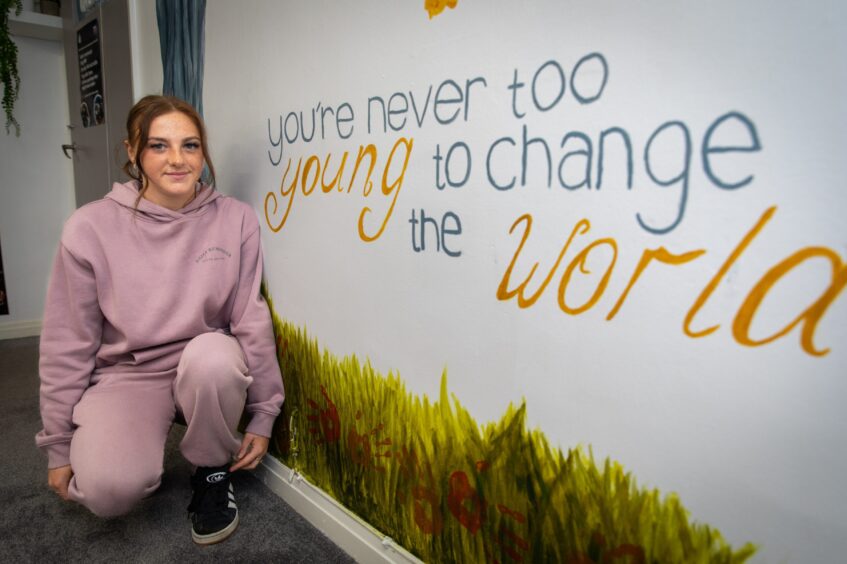
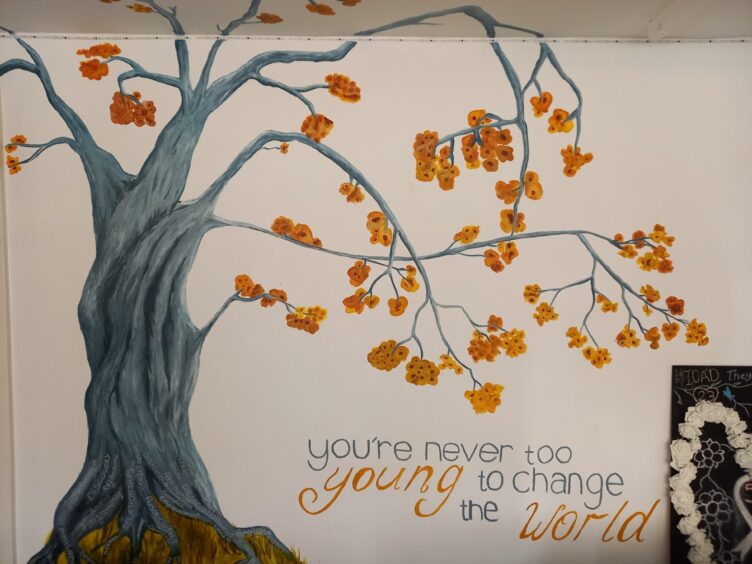
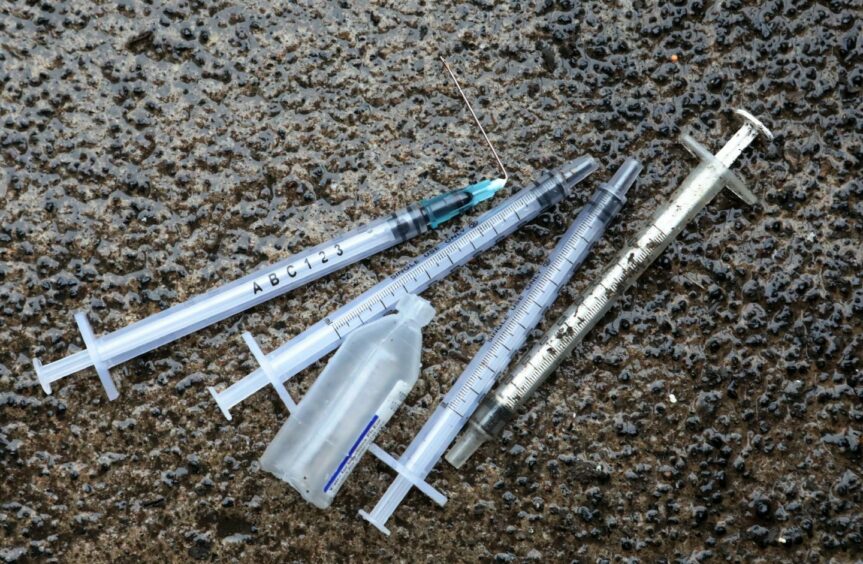
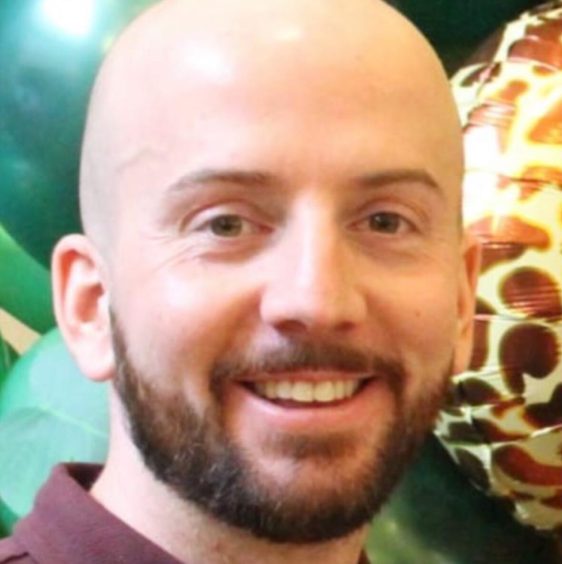
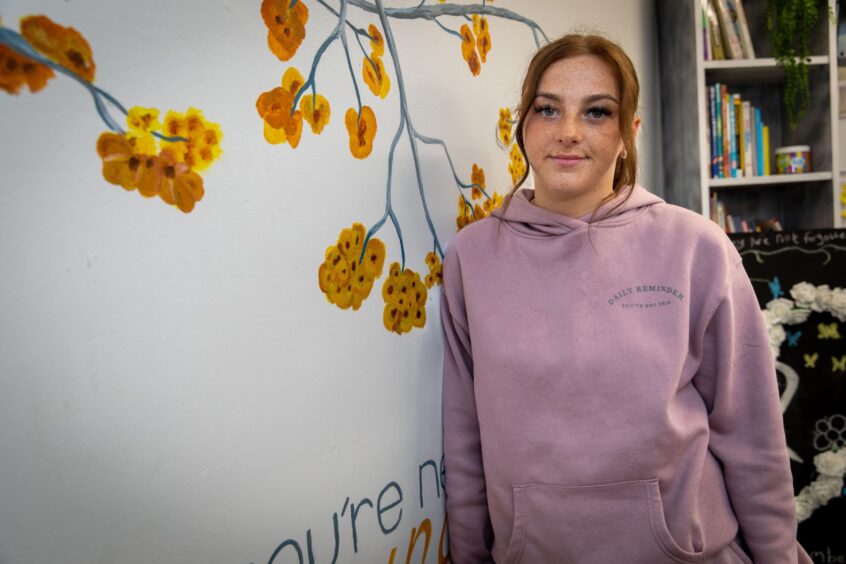
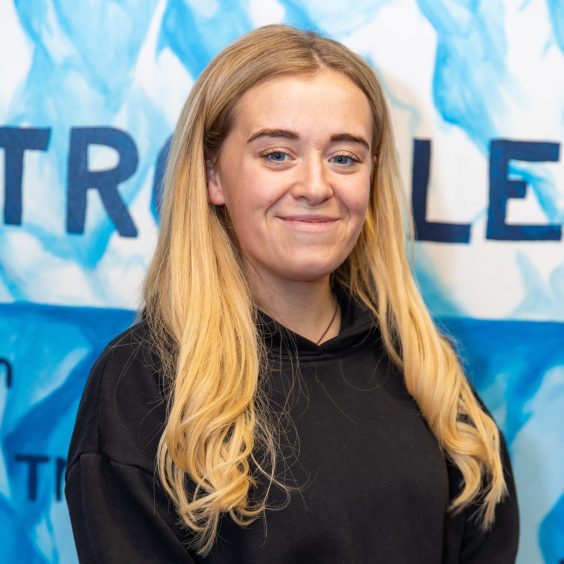
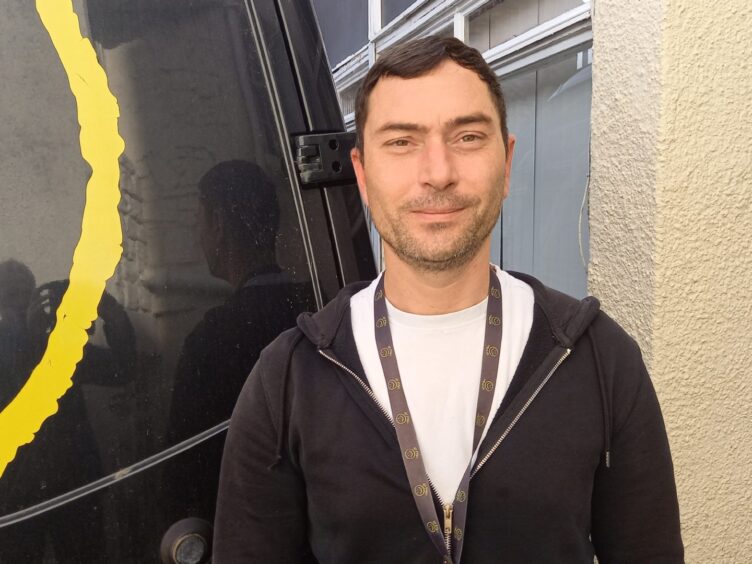
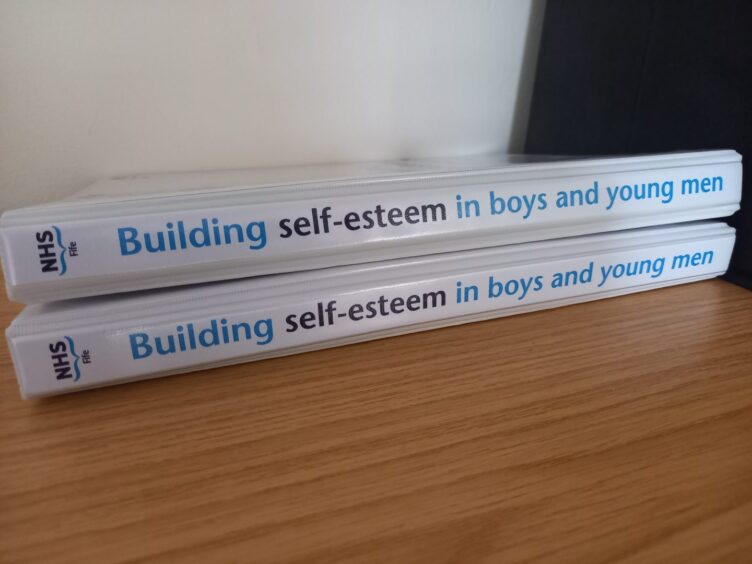
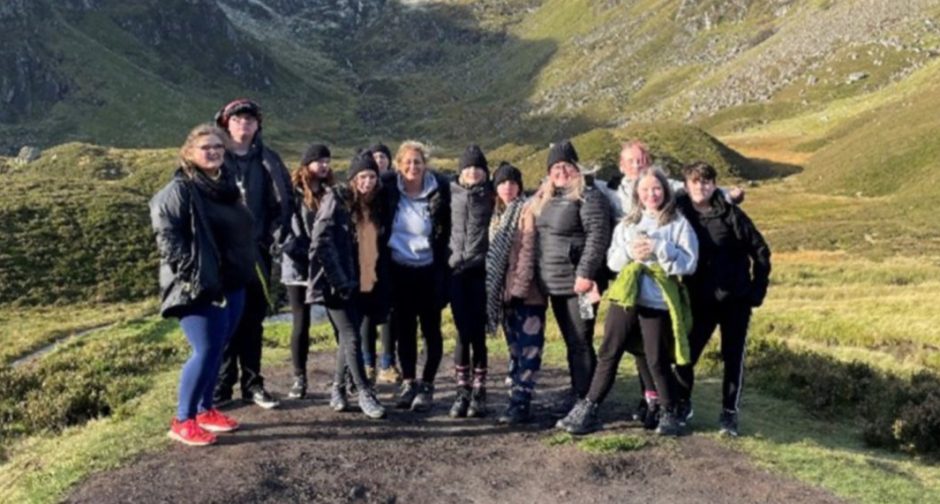
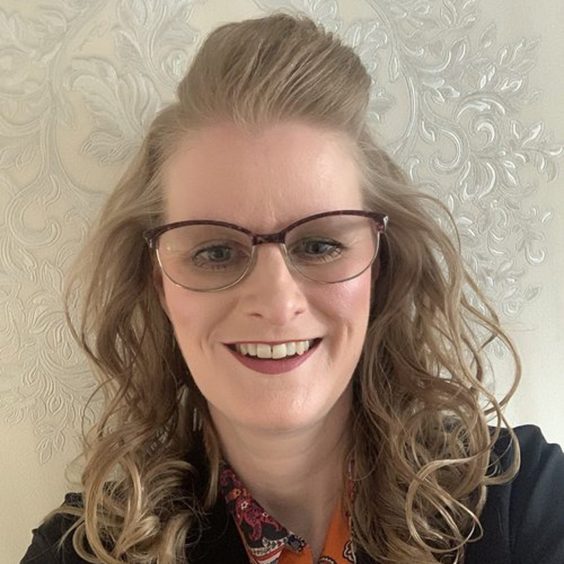
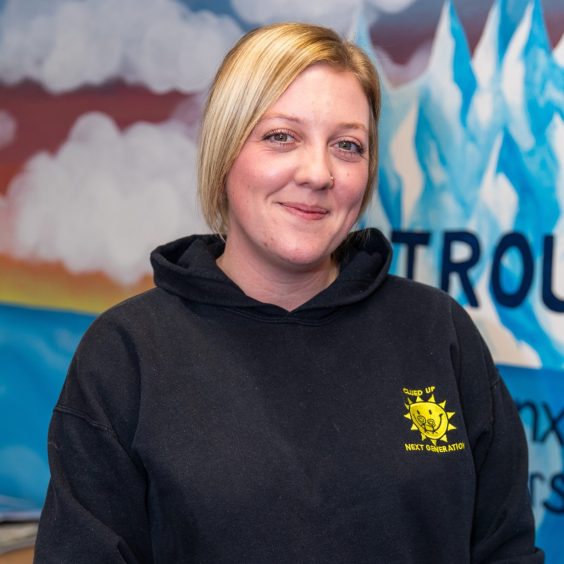








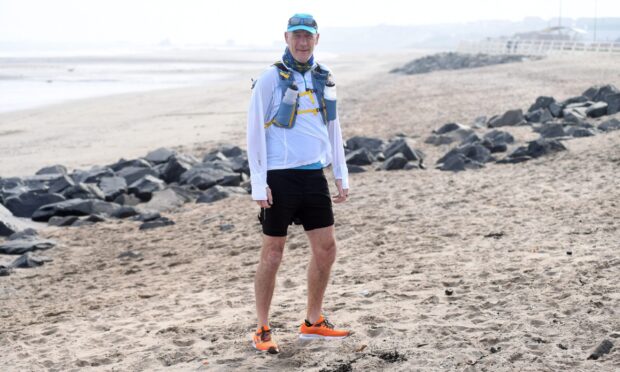
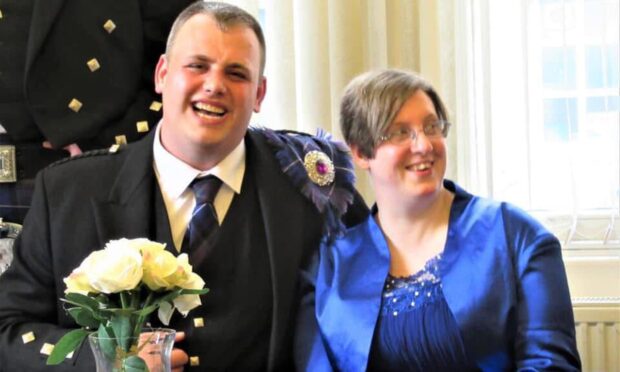
Conversation